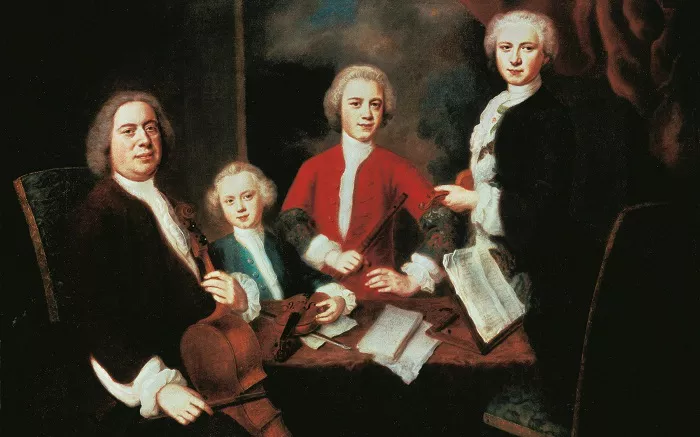Classical music has long been a cornerstone of cultural heritage and human expression. Its roots trace back centuries, encompassing a vast array of styles, composers, and historical contexts. Today, classical music continues to influence and shape our lives in many profound ways. But how does the community benefit from classical music? This article explores the various ways in which classical music enriches communities, enhances individual well-being, and fosters cultural cohesion.
I. Introduction
Classical music is often seen as an elite art form, appreciated by a select few. However, its impact on communities extends far beyond concert halls and academic circles. Classical music can uplift, educate, and unite people from diverse backgrounds. This article will delve into the multifaceted benefits of classical music, examining its educational, therapeutic, social, and economic impacts.
II. Educational Benefits
1. Enhancing Cognitive Development
Studies have shown that exposure to classical music can boost cognitive development in children. The complexity and structure of classical compositions stimulate brain activity, enhancing memory, attention, and spatial-temporal skills. Learning to play classical music instruments also improves fine motor skills and hand-eye coordination.
2. Academic Achievement
Students who engage with classical music tend to perform better academically. Schools that incorporate music education into their curriculum often see higher test scores and graduation rates. Classical music promotes discipline, patience, and perseverance—qualities that translate into academic success.
3. Cultural Literacy
Classical music education exposes students to historical and cultural contexts. Learning about composers like Bach, Mozart, and Beethoven offers insights into the periods they lived in and the cultural movements they influenced. This fosters a deeper understanding of history and the arts.
III. Therapeutic Benefits
1. Mental Health
Classical music has a profound effect on mental health. Listening to classical music can reduce stress and anxiety, promoting relaxation and emotional well-being. Music therapy, which often includes classical music, is used to treat a range of mental health conditions, including depression, PTSD, and schizophrenia.
2. Physical Health
The therapeutic benefits of classical music extend to physical health. Studies have shown that listening to classical music can lower blood pressure, reduce heart rate, and improve sleep quality. In hospitals, classical music is used to create a calming environment, aiding in patient recovery.
3. Pain Management
Classical music is also effective in pain management. Music therapy can alleviate chronic pain and discomfort, reducing the need for pain medication. The soothing qualities of classical music help distract patients from pain, providing a natural form of relief.
IV. Social Benefits
1. Community Cohesion
Classical music brings people together. Community concerts, festivals, and music education programs create opportunities for social interaction and cultural exchange. These events foster a sense of belonging and unity, strengthening community bonds.
2. Bridging Cultural Divides
Classical music transcends cultural boundaries. It is a universal language that can bridge divides and foster mutual understanding. Through collaborative performances and cross-cultural exchanges, classical music promotes inclusivity and diversity.
3. Youth Engagement
Engaging young people in classical music can have a transformative effect. Youth orchestras, choirs, and music programs provide a positive outlet for creativity and expression. These initiatives help keep young people engaged, reducing the risk of delinquency and promoting personal development.
V. Economic Benefits
1. Job Creation
Classical music supports a wide range of jobs, from musicians and conductors to educators and administrators. Orchestras, opera companies, and music schools provide employment opportunities, contributing to the local economy.
2. Tourism and Cultural Heritage
Classical music is a significant draw for cultural tourism. Festivals, concerts, and historic music venues attract visitors from around the world. This influx of tourists supports local businesses, from hotels and restaurants to shops and transportation services.
3. Economic Stimulus
Investment in classical music infrastructure—such as concert halls, music schools, and recording studios—stimulates economic growth. These projects create jobs, boost local economies, and enhance the cultural capital of communities.
VI. Case Studies
1. El Sistema (Venezuela)
El Sistema is a music education program in Venezuela that provides free classical music education to children from underserved communities. Founded in 1975 by José Antonio Abreu, El Sistema has transformed the lives of thousands of children, promoting social change and personal development through music.
2. The Big Noise (Scotland)
Inspired by El Sistema, The Big Noise program in Scotland offers classical music education to children in deprived areas. The program has been successful in improving academic performance, reducing crime rates, and fostering community pride.
3. Carnegie Hall’s Weill Music Institute (USA)
Carnegie Hall’s Weill Music Institute provides a range of music education and community engagement programs. These initiatives reach diverse audiences, from school children to senior citizens, enhancing access to classical music and promoting cultural enrichment.
See Also: Classical Music for Kids: A Deep Dive into Timeless Melodies
VII. Conclusion
Classical music offers numerous benefits to communities. It enhances cognitive development, academic achievement, and cultural literacy. It promotes mental and physical health, aids in pain management, and fosters social cohesion. Economically, it creates jobs, stimulates tourism, and drives local development. Through case studies like El Sistema, The Big Noise, and Carnegie Hall’s Weill Music Institute, we see the transformative power of classical music in action. In conclusion, classical music is not just an art form; it is a vital component of community well-being and development. Communities that embrace classical music are richer in culture, stronger in unity, and more vibrant in spirit.

